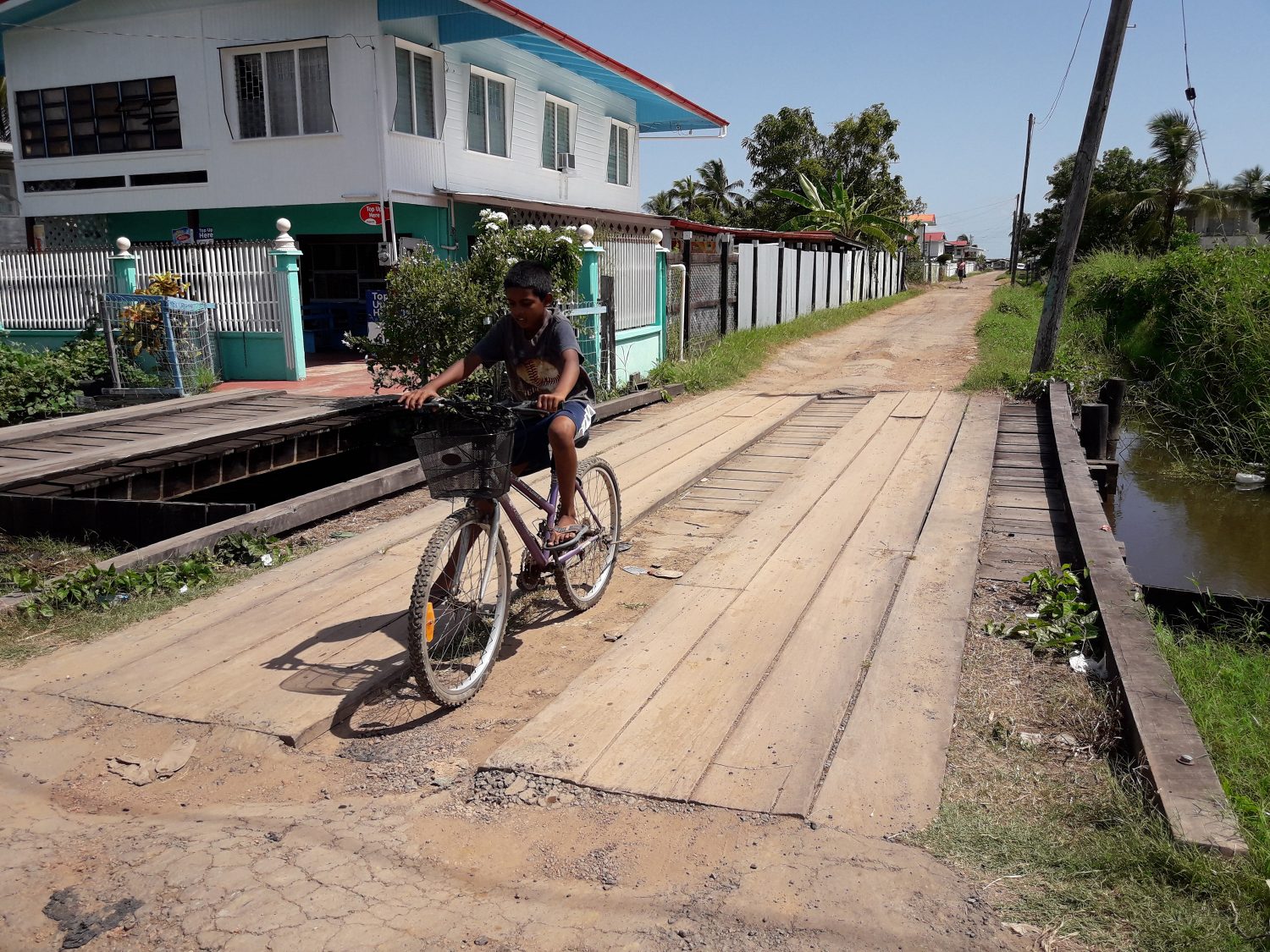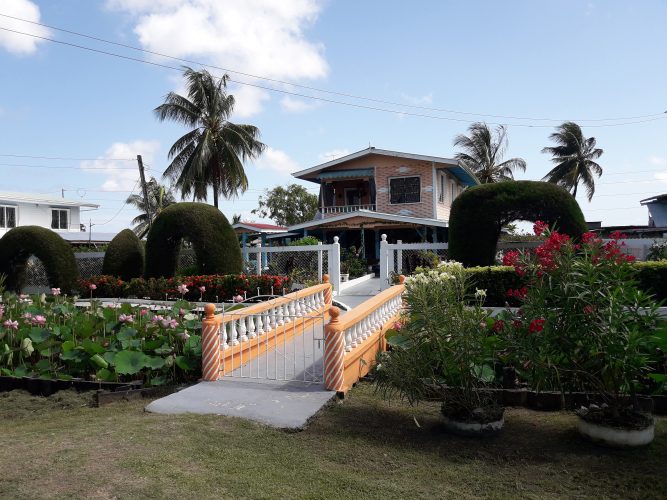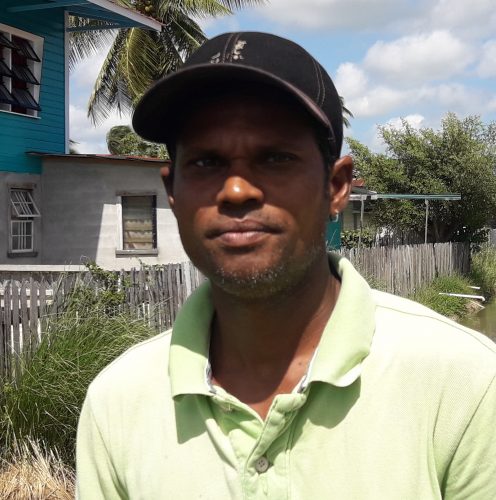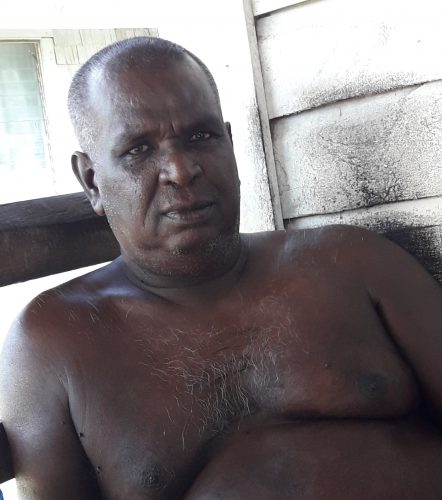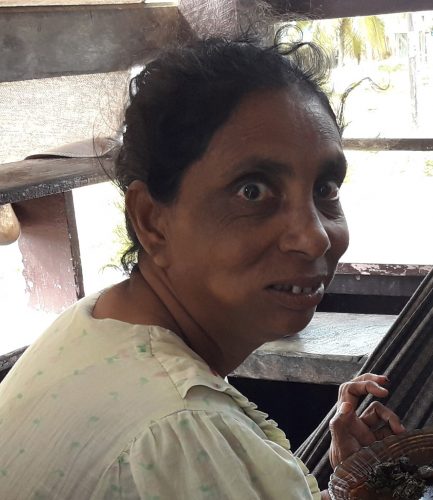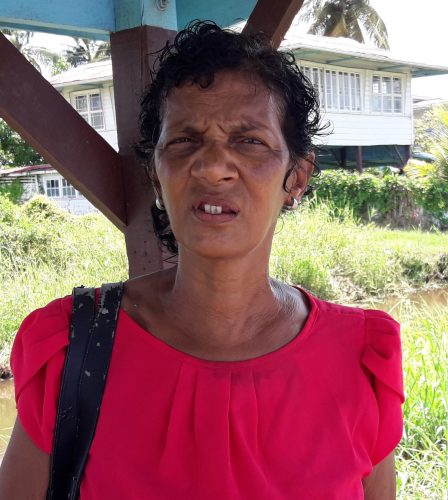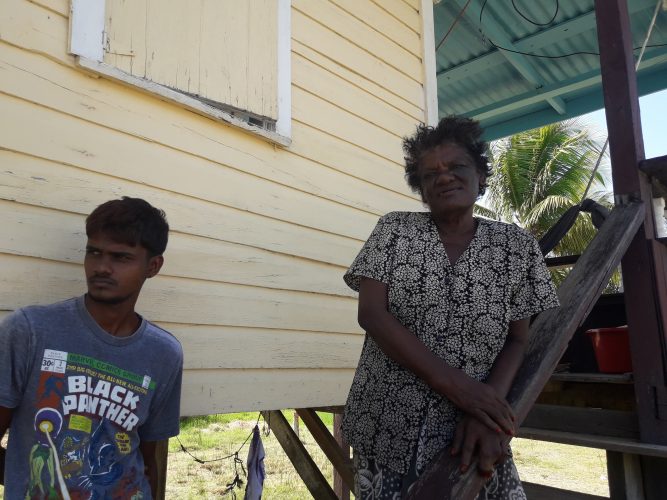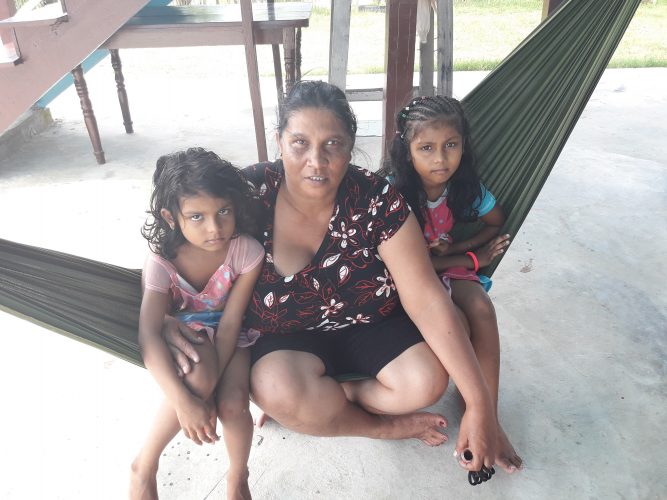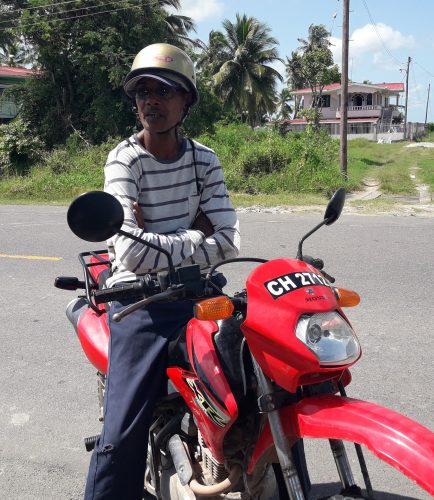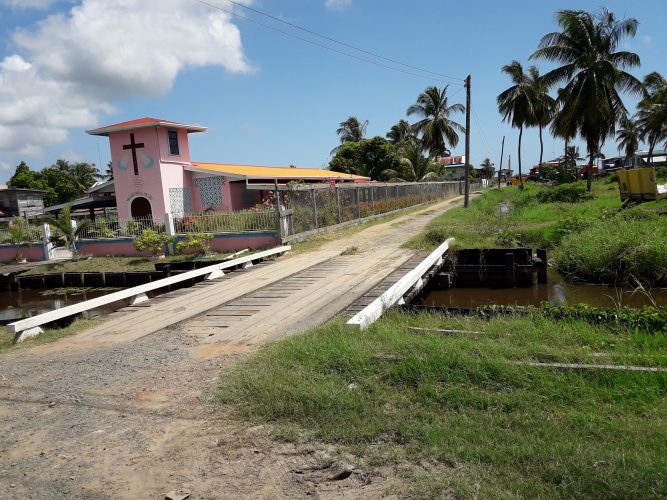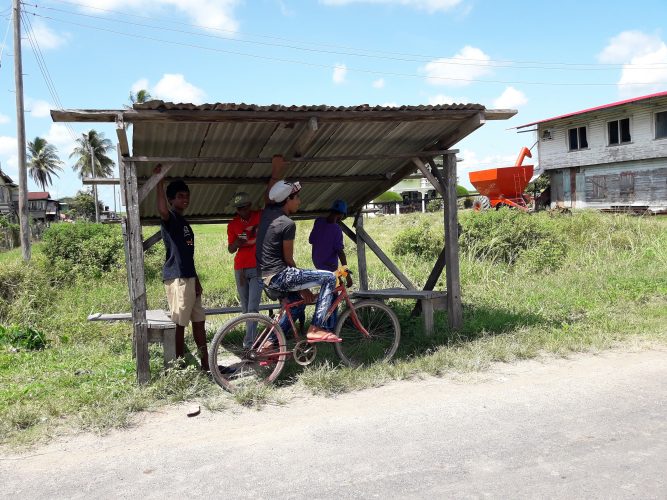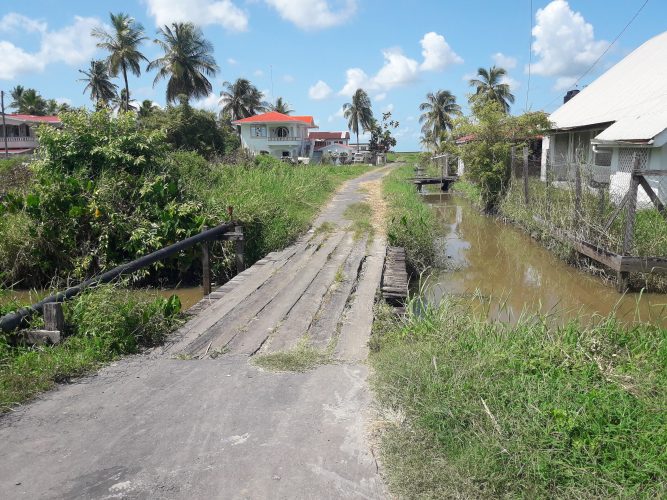Warren Plantation is on the Corentyne Coast, directly after Number 19 Village when one is travelling from New Amsterdam. However, because there is no signage indicating where the village begins and ends, it often goes unnoticed. In addition, for ages, persons have been calling all of the villages in proximity to Number 19 Village, “Nineteen”.
Warren Plantation has five cross streets, three Christian churches, one mandir and one mosque. Residents of Warren Plantation told the World Beyond Georgetown that the village had undergone tremendous development in previous years, but at present, it seems stuck; they believe it is time some attention is paid to the roads.
Resident Madan Pertabsingh said his life in Warren Plantation has not been the same since June 2006, when his “beautiful princess,” who was 16 years old at the time, was murdered. He said it was a murder that shocked not only Warren Plantation, but the entire country. He said the death of his daughter took his life to a dark place. However, with the support of his wife and other children he is now living quietly, while remembering the fun times he shared with his “little girl”. The 54-year-old man said he has never received any justice for the brutal rape and murder of his teenage daughter; the case against the accused fell through at the Albion Magistrate’s Court in 2010 owing to hostile witnesses. The accused was set free at the end of the preliminary inquiry by Magistrate Chandra Sohan, who upheld no-case submissions made by his lawyer Michael Sommersaul. Pertabsingh said he lives a few houses away from where his daughter was brutally raped and murdered and it haunts him everyday. The teenager, Roshnie Pertabsingh, had gone to stay the night with a 73-year-old neighbour, who had requested her company. Roshnie, who at that time had already written three CSEC subjects and was getting ready to write three more was attacked in the woman’s house, tied up on the bed and brutally raped and murdered. Residents told the World Beyond Georgetown that the woman who the teen was staying with claimed that the perpetrator(s) had knocked her out. However, they said, at one time she claimed that while semi-conscious she had heard the teen screaming for help. After the attack, the elderly woman migrated to a foreign country. Pertabsingh said he wished he had heard his daughter’s screams. “I coulda save she,” the still visibly-grieving man said. “We live right here and didn’t hear anything. I wish I coulda do something and me daughter woulda be alive to live she life.” According to Pertabsingh, the woman of the house reportedly had told him, that she knew the person who had knocked her out. “It went court and I thought me woulda get justice but one day somebody call me and say the man get free,” he said. “Me poor, what me can do? When people get money them can do anything. Me does just got to sit down and remember me baby.” He said he had met several times with members of the previous administration, when they were in government, but, “till to this day me ain’t get justice and he [the accused] mussy deh living he life.” Pertabsingh believes lawmen at that time played a major role in thwarting the course of justice. “I complain one time to Home Affairs Minister [Clement] Rohee; he tell me me a tell lie pon police. This country na get justice,” the father said.
Meanwhile, on another note, Pertabsingh said he has lived in Warren Plantation his entire life and has never been the owner of a landline service. “Them run some wires on the road years ago but them never give we phone,” he said, pointing out that it has been years since any rehabilitation work has been done on the main access roads. “The streets and so breaking up, them need to fix it.” Pertabsingh’s wife was sitting in her hammock eating breakfast and conversing with her husband, daughter and granddaughter. The family said that since the death of Roshnie they try to spend as much time together as possible. Another resident, Lynette Ramdeen, 48, said she was three months old when her father died. Years later, after marrying and having children, her husband left her. “Me ain’t know me father and me work and mine me four daughters till them get big,” she said. “Sometimes me see something me couldn’t a buy it because me does save the money to try buy whatever they want.” Ramdeen, a domestic worker, supported her daughters through many challenges. She said her second daughter got married and had two daughters, however, her married life was never happy because her mother-in-law never liked her. “We poor and them does always tell she she come from nothing,” Ramdeen lamented. “These things use to hurt me because me work hard to bring up me daughters and then them na reach a happy time.” About two years ago, her second daughter separated from her husband. But that was not the end of their worries, Ramdeen’s son-in-law was riding a motorcycle, allegedly intoxicated, when he collided with a utility pole along the Number 19 Public Road. He died on the spot. Ramdeen took in her daughter and her two granddaughters. Six months ago, her daughter migrated to the United States; Ramdeen now takes care of her two granddaughters.
Some years ago, she lost her third daughter to suicide, but still looks at life in a positive manner. She said her third daughter killed herself three weeks after giving birth to her first child.
“She use to live with she in-laws and husband and them claim that them ain’t know why she kill she self,” Ramdeen said. “Me grow them so big and every time she use to come here she use to always deh smiling. If she been tell me something wrong me would a help she. Me don’t talk really much to she in-laws and husband…, me think them have to know something. Me does go see me grandson though.” Ramdeen was also one of the residents who called for line phones and rehabilitation of the roads. Touching on the history of the village, one resident said, “Long time it na had nuff people was a lil village, then them make children and children married and now it get nuff people, mostly young people here.” Meanwhile, Frankie Baker, another resident, lost his sister, Janet Baker, in the infamous Number 19 accident, which left 12 persons dead, including a two-month-old, and five others hospitalized for some time. Baker said he grieves for his sister every day and that it hurts to know she lost her life minutes away from her home. He noted that the case is likely to be heard in the Berbice High Court soon, and he is awaiting justice.
According to Baker, the government built a bridge to accommodate heavy-duty machinery to the farm lands in Warren Plantation, but farmers in the area are using the residential streets. He said the machines are destroying the streets and residents will not have this continue. “They don’t want to use the bridge, them saying the streets faster and them ain’t want use gas and pay money and is na far the bridge deh right through there,” he pointed out. Baker said he has lived his entire life in the village, and loves the fact that the village is “small and cosy, and has easy access to the public road.” Another resident said she moved into Warren Plantation in 1972 and “… don’t think I could live anywhere else.” The 62-year-old woman complained about the condition of the streets in the village. She said that since she has been residing in the village, “Two times them make the street, one time with bricks and the other time them pitch it and that was years ago.”
She added, “Here is more populated, I like it here.” The woman, who lives alone, said her daughter lives in the same street and as such she spends her days with her daughter and her nights at home. Twenty-one-year-old Deokumar Deodatt also known as ‘Marky’ said he lives with his mom and “likes” the village. He spoke of the tap water in the area, noting, “… some days it a run red and only one, one time it a run clear.” The small yet heavily populated Warren Plantation also has a ball field, which is hardly used. According to residents, while the village is heavily populated with children, they often opt to stay at home and play. The village also has two shops. However, residents still head to New Amsterdam or further up the Corentyne to purchase groceries and vegetables. One resident operates a snackette in front of her home on the main road in Warren Plantation. While she was too shy to have her picture taken, she said she got married a few years ago and moved to Warren from the East Coast Demerara. “Me husband is an only child and we living with he parents, but we does go most time by me family them too,” she said. “Me like so more, because it more populated and better for business; me like cook things so about one year ago me decide fa start sell.” Residents are mostly estate workers and fisher folk. One cane harvester attached to the Rose Hall Estate said he is contemplating where he will seek employment once the Rose Hall Estate is no longer in operation, which is likely to be at the end of December. “Well we working now and waiting to see what gone happen, I hope them ain’t close it, but they look like they gon close it. I gon have to see where else to work,” said Deodat Guyanand, also known as ‘Derek’, 35.
Residents of the village also stated that if someone were to open a supermarket in the village, it would be quite profitable.
